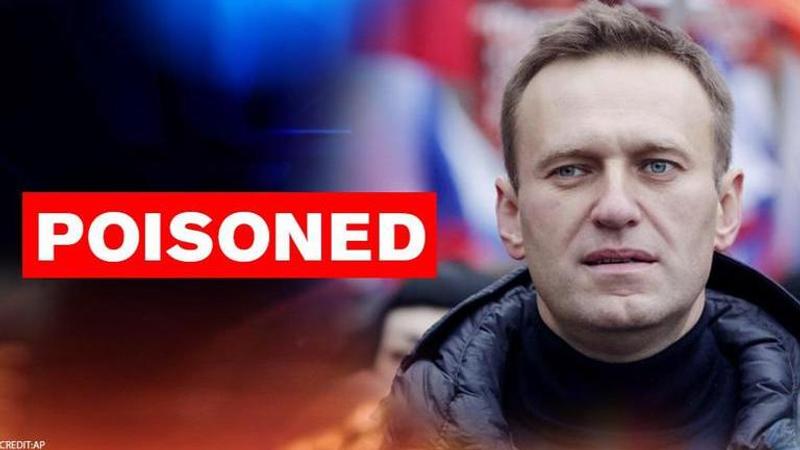Published 01:52 IST, September 3rd 2020
German doctors find Soviet-era nerve agent Novichok in Alexei Navalny's samples
German authorities on Wed informed that Russian critic Alexei Navalny's sample tested positive for the presence of a Soviet-era nerve agent Novichok.

In an embarrassing development for Kremlin, German authorities have informed that Russian opposition leader Alexei Navalny's sample tested positive for the presence of a Soviet-era nerve agent Novichok.
German Chancellor Angela Merkel’s spokesman Steffen Seibert, in a statement on Wednesday, September 02, said the toxicological test results "revealed unequivocal proof of the presence of a chemical nerve agent from the Novichok group." Alexei Navalny's samples were tested by a special German military laboratory after he was flown to Berlin for medical treatment, exhibiting symptoms of poisoning.
"The fact that Alexei Navalny was the victim of an attack with a chemical nerve agent in Russia is shocking. The Federal Government condemns this attack in the strongest possible terms. The Russian Government is urgently called upon to make a statement on the incident," the official German statement further added.
German authorities have informed their European Union and NATO partners about Navalny's toxic screen results and will be discussing an appropriate joint response; Organisation for the Prohibition of Chemical Weapons (OPCW) will be approached as well.
What is Novichok?
Novichok is a chemical weapon developed by the Soviet Union between 1971 to 1993 at the peak of the Cold War. It's a sophisticated agent and was classified as a fourth-generation chemical weapon.
Novichok last made headlines with the Skripal poisoning case in March 2018. Former Russian secret service agent Sergei Skripal and his daughter Yulia were attacked in their Salisbury home in the United Kingdom. The Skripals were released from the hospital after weeks of treatment in April-May and have been living under the wraps since then. The British police believe the former Russian spy was 'targeted' and have been treating the case as attempted murder.
Navalny in 'medically-induced coma'
One of Russian President Vladimir Putin's staunchest critics, Alexei Navalny has been in the headlines since he fell sick under mysterious circumstances on a flight back to Moscow from Siberia on Aug 20. He was rushed to a hospital in the Siberian city of Omsk after the plane made an emergency landing and has been in a coma ever since.
Navalny's supports were quick to suspect he had been poisoned but Russian authorities had denounced the allegations and expressed concerns over this well being.
After much debate over his transfer, Navalny was later moved to Berlin’s Charite hospital, where doctors last week admitted to indications of poisoning. His spokesperson on August 28 had informed that the Russian critic is facing no serious threat to life as he remains in a medically-induced coma with ventilator support.
(With AP Inputs)
Updated 05:30 IST, September 3rd 2020




